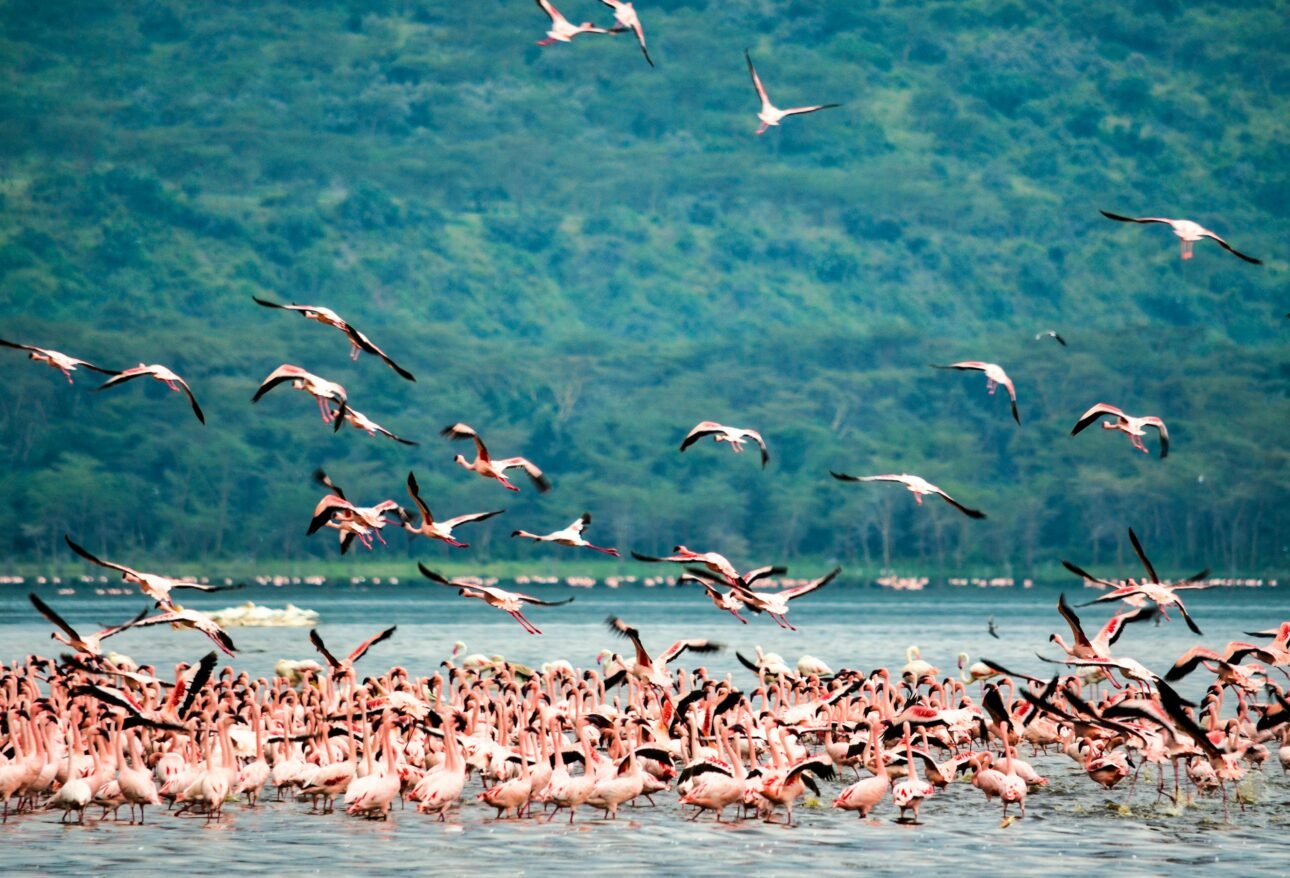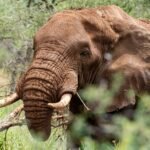Lake Nakuru National Park, located in the heart of Kenya’s Rift Valley, is a stunning destination famous for its incredible array of wildlife and breathtaking landscapes.
Boasting a rich biodiversity and a vibrant ecosystem, the park is not only a haven for wildlife enthusiasts but also an ideal location for those seeking to immerse themselves in the natural beauty of Kenya.
In this article, we will explore why you should consider visiting Lake Nakuru National Park, highlighting its unique wildlife, mesmerizing scenery, cultural significance, and essential tips for a successful visit.
Join us as we discover the wonders that await in this UNESCO World Heritage site.
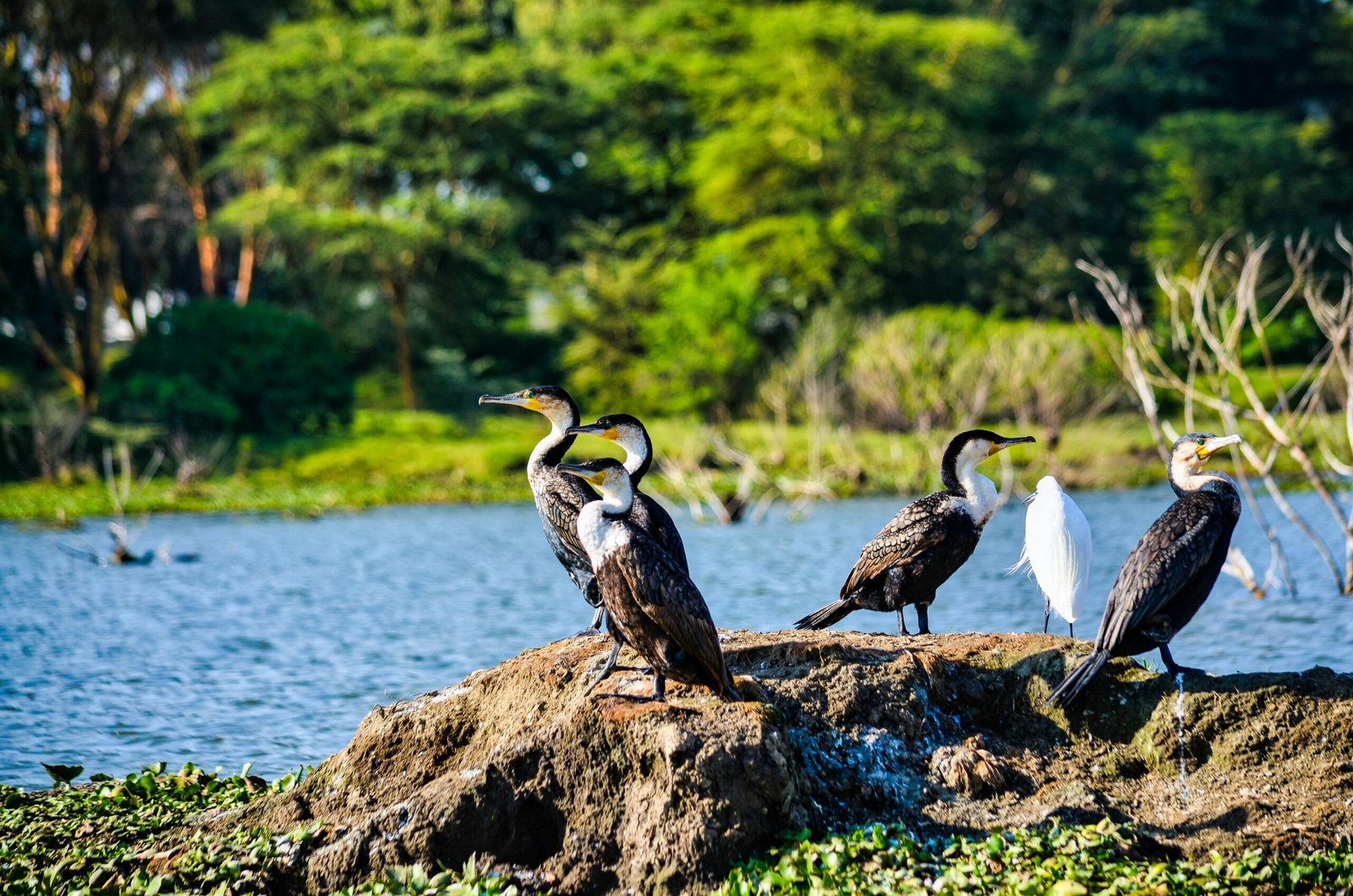
Key Takeaways
- Lake Nakuru National Park is renowned for its diverse wildlife and exceptional birdwatching experiences.
- Visitors can witness the stunning landscapes, including the iconic alkaline lake and surrounding escarpments.
- The park is home to unique ecosystems, making it a prime spot for observing endangered species like the Rothschild giraffe.
- Engaging with local communities enhances the cultural experience while visiting the park and fosters eco-tourism.
- Practical tips for visiting ensure a safe and enjoyable experience, highlighting the best times and essential gear needed.
Introduction to Lake Nakuru National Park
Lake Nakuru National Park, situated in the heart of Kenya’s Rift Valley, is a stunning natural destination that attracts wildlife enthusiasts, photographers, and nature lovers alike.
Known for its breathtaking landscapes and diverse ecosystems, the park is famous for its vibrant populations of flamingos that flock to the lake’s shores, creating a mesmerizing pink hue.
But why visit Lake Nakuru National Park beyond its picturesque views?
The park is not only home to over 400 species of birds, but also harbors a variety of wildlife, including the endangered white rhino and the elusive leopard.
With its unique combination of biodiversity, scenic beauty, and rich cultural history, Lake Nakuru National Park offers visitors an unparalleled experience that highlights the splendor of Kenya’s natural heritage.
Unique Wildlife and Birdwatching Opportunities
If you’re pondering why visit Lake Nakuru National Park, one compelling reason lies in its unique wildlife and birdwatching opportunities.
Situated in the heart of Kenya, this stunning park is renowned for its diverse ecosystems and rich biodiversity.
Home to over 450 species of birds, including the famous lesser flamingos that blanket the shores during certain seasons, Lake Nakuru offers an unforgettable experience for birdwatchers and nature lovers alike.
Beyond the avian spectacles, the park also hosts a variety of wildlife, including the endangered Rothschild giraffe, black and white rhinos, and lions, providing ample opportunities for exciting game drives.
The picturesque backdrop of the lake, surrounded by acacia forests and rocky cliffs, enhances this vibrant habitat, making it a must-visit destination for anyone passionate about wildlife conservation and photography.
Thus, the answer to ‘why visit Lake Nakuru National Park?’ is simple—it’s not just a park; it’s a sanctuary brimming with life!
‘In every walk with nature, one receives far more than he seeks.’ – John Muir
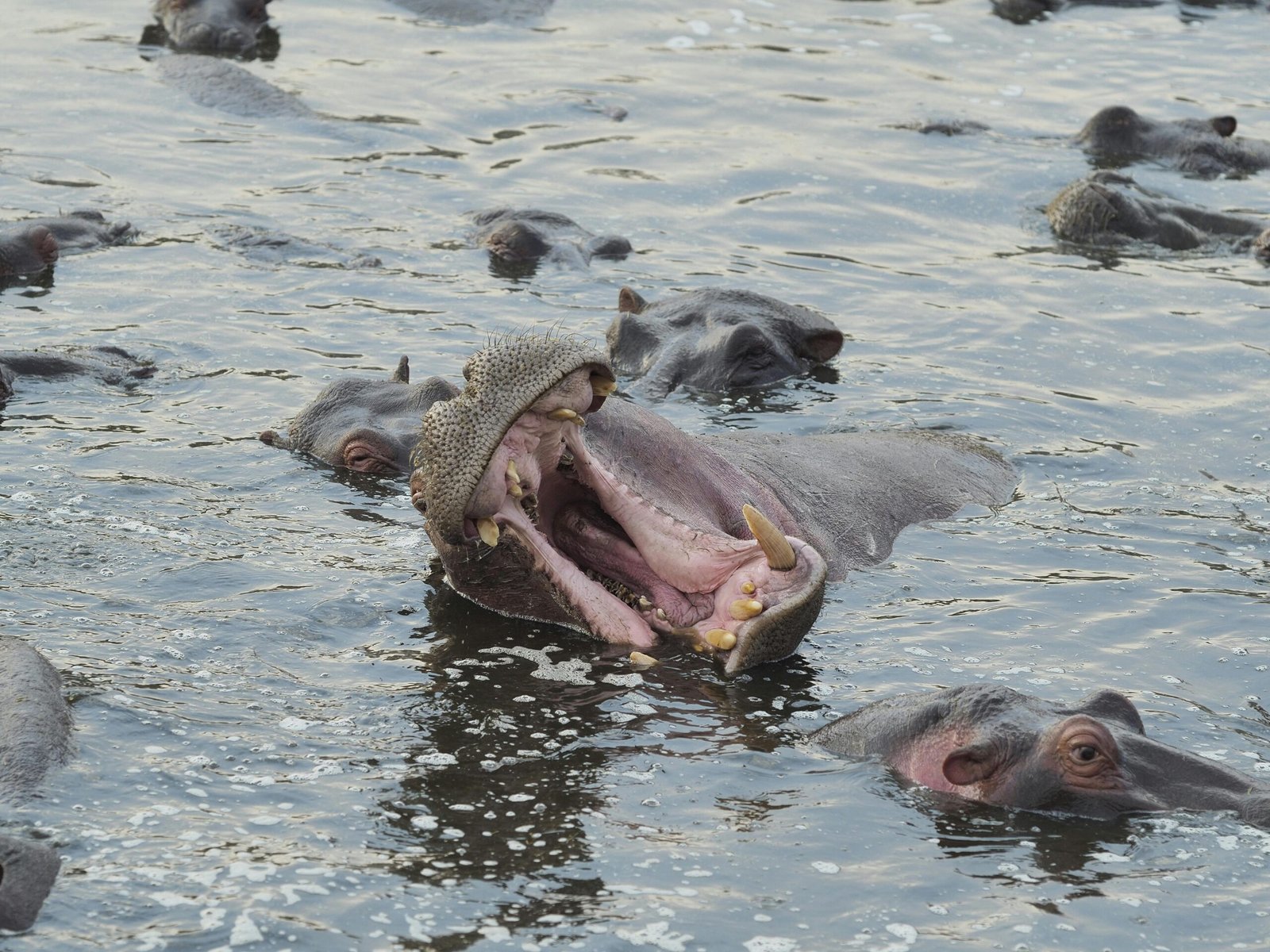
Scenic Landscapes and Natural Attractions
Nestled in the heart of Kenya’s Great Rift Valley, Lake Nakuru National Park is a stunning destination that irresistibly beckons nature lovers and adventure seekers alike.
So, why visit Lake Nakuru National Park?
The park is renowned for its breathtaking scenic landscapes, which include the expansive alkaline lake itself, breathtaking escarpments, and diverse ecosystems that are home to an array of wildlife.
Visitors can expect to witness flocks of flamingos that come to feed on the lake’s abundant algae, creating a mesmerizing pink hue against the shimmering blue water.
Beyond the flamingos, the park is a sanctuary for over 400 species of birds and offers optimal opportunities for spotting endangered species like the black and white rhinos.
The picturesque surroundings, combined with the chance to engage in exhilarating activities such as game drives and guided walks, underscore why Lake Nakuru National Park is a must-visit destination for anyone keen on experiencing the natural beauty of Kenya.
Cultural Significance and Local Communities
When considering a trip to Kenya, one cannot overlook the cultural significance and local communities surrounding Lake Nakuru National Park.
Why visit Lake Nakuru National Park? Beyond its stunning landscapes and diverse wildlife, the park serves as a vital part of the local Maasai and Kikuyu cultures.
Visitors have the opportunity to engage with the vibrant communities that inhabit the area, learning about their traditions, crafts, and harmonious relationship with nature.
Community-led initiatives often encourage sustainable tourism, allowing travelers to appreciate the rich heritage while also supporting local economies.
By visiting, you become a part of this interconnected web, gaining insights into the rituals and day-to-day lives of these resilient groups, which enhances your overall experience of the park’s breathtaking beauty.
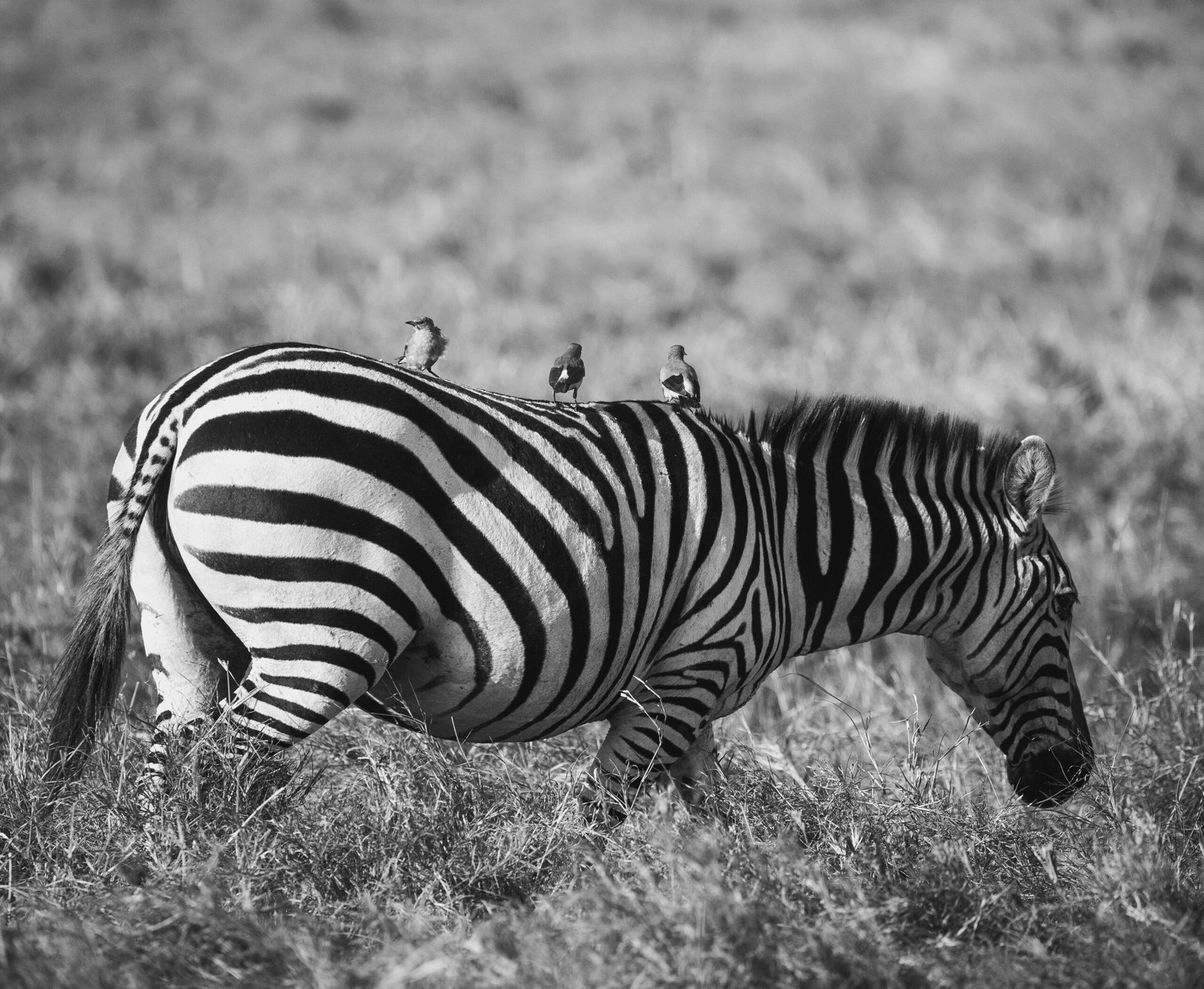
Practical Tips for Visiting Lake Nakuru
Lake Nakuru National Park, often regarded as one of Kenya’s most spectacular destinations, presents a unique blend of stunning scenery and incredible wildlife.
But why visit Lake Nakuru National Park?
Well, first and foremost, it is renowned for its vibrant birdlife, particularly the massive flocks of flamingos that form an astonishing pink hue along the shores of the lake, especially during the wet season.
Beyond the avian wonders, the park is home to a variety of fauna, including the endangered black and white rhinos, lions, and a diverse range of other species, making every safari an adventure.
When planning your visit, consider these practical tips: arrive early in the morning to catch the wildlife at their most active, bring along binoculars and a good camera to capture the breathtaking landscapes and moments in the wild, and ensure to allocate time for the scenic viewpoints like Baboon Cliff, which offers panoramic views of the lake and surrounding areas.
Lastly, don’t forget to engage with local guides, as their expertise can greatly enhance your understanding of the park’s ecology and cultural significance while ensuring a memorable experience.
Frequently Asked Questions
What is Lake Nakuru National Park known for?
Lake Nakuru National Park is renowned for its stunning landscapes, unique wildlife, and abundant birdwatching opportunities, particularly its famous flocks of flamingos.
What types of wildlife can I expect to see in Lake Nakuru National Park?
Visitors to Lake Nakuru can expect to see a variety of wildlife, including the endangered Rothschild’s giraffe, lions, hippos, and numerous bird species, making it a paradise for wildlife enthusiasts.
Are there cultural experiences available when visiting the park?
Yes, Lake Nakuru National Park is surrounded by local communities, offering cultural experiences that allow visitors to learn about the traditions and lifestyles of the Maasai and Nakuru residents.
What are the best times to visit Lake Nakuru National Park?
The best times to visit are during the dry seasons, from June to October and from January to February, when wildlife viewing is optimal and the roads are more accessible.
What practical tips should I keep in mind when visiting Lake Nakuru?
Some practical tips include bringing binoculars for birdwatching, packing sunscreen and insect repellent, and ensuring you have a guide to enhance your experience.
Kikuyu Arcade, Kiambu, Kenya 00902
+254 720 637 298
+254 726 906 136
info@africancrestedratsafaris.com
sales@africancrestedratsafaris.com

